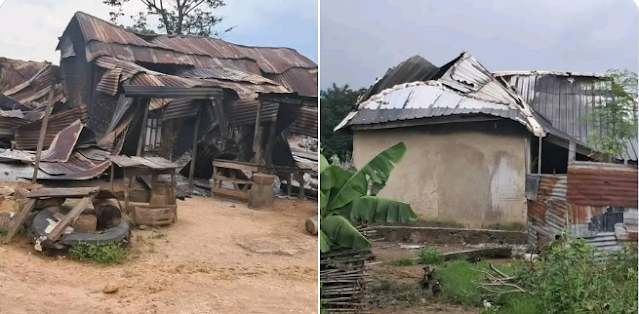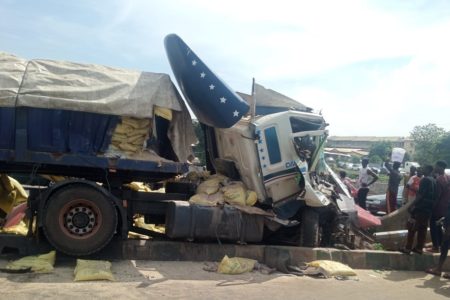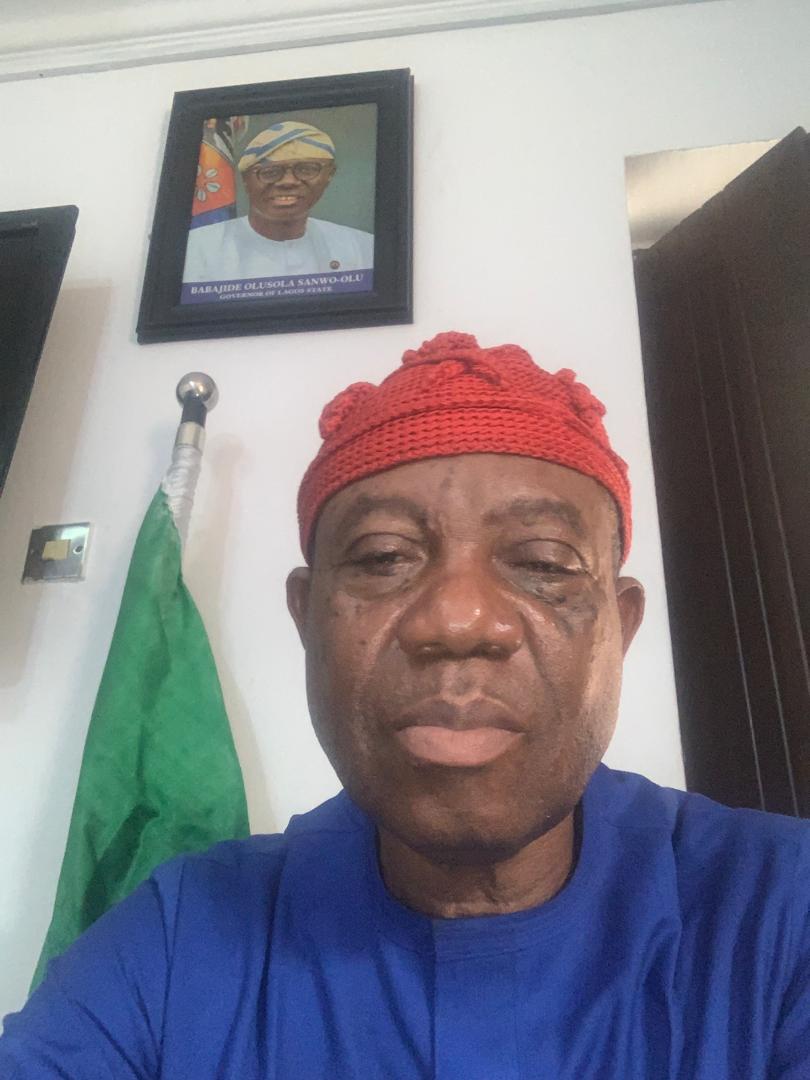In a tragic escalation of violence in Nigeria’s Plateau State, a fresh attack by suspected bandits has left a trail of destruction in the Wase Local Government Area. According to reports, at least 30 houses were razed, and approximately 300 individuals have been displaced following the assault on the Kamaru community in the Zurak Campani area. The attack, which occurred in the early hours of Monday, September 1, 2025, has once again highlighted the persistent security challenges plaguing Nigeria’s Middle Belt region, where communal clashes, banditry, and other forms of violence have become disturbingly frequent.
The assault was confirmed by Daniel Manwan, a youth leader in the Zurak Campani community, who spoke to journalists about the scale of the destruction. Manwan described a harrowing scene, noting that the attackers, believed to be bandits, stormed the community under the cover of darkness, setting homes ablaze and forcing residents to flee for their lives. While no fatalities were reported in the immediate aftermath of the attack, the loss of property and the displacement of hundreds of people have left the community reeling, with many now seeking refuge in neighboring areas.
Details of the Attack
The attack on Kamaru began in the early hours of Monday, when residents were likely asleep or preparing for the day. The assailants, armed and organized, descended on the community with apparent intent to cause maximum disruption. According to Manwan, the bandits targeted residential areas, setting fire to approximately 30 homes. The fires spread quickly, reducing structures to ashes and destroying personal belongings, livelihoods, and the sense of security for hundreds of residents. The scale of the destruction suggests a coordinated effort, though the exact motives behind the attack remain unclear.
Manwan’s account paints a vivid picture of chaos and fear. “The bandits came in the early hours, and before we could organize any resistance, they had already started burning houses,” he told reporters. “People were running in different directions, trying to escape the flames and the attackers. By the time the situation was under control, many had lost everything they owned.” The absence of immediate casualties, while fortunate, does little to mitigate the profound impact on the community, as the loss of homes and possessions has left families destitute.
The Kamaru attack is the latest in a series of violent incidents in Plateau State, a region long plagued by ethnic, religious, and resource-based conflicts. The Zurak Campani area, located in Wase Local Government, has been particularly vulnerable to such attacks due to its remote location and the limited presence of security forces. The targeting of homes suggests an intent to displace residents, possibly as a means of asserting control over the area or settling scores in ongoing communal disputes.
The Humanitarian Toll
The displacement of approximately 300 people has created an immediate humanitarian crisis in the region. Displaced residents, many of whom fled with little more than the clothes on their backs, are now grappling with the challenge of finding shelter, food, and other basic necessities. The destruction of 30 homes represents not only a loss of physical structures but also the erasure of personal histories, livelihoods, and community cohesion. For many, the rebuilding process will be a long and arduous journey, compounded by the economic hardships already prevalent in the region.
Local authorities and humanitarian organizations are now faced with the daunting task of providing relief to those affected. Temporary shelters have reportedly been set up in neighboring communities, but the capacity to accommodate such a large number of displaced persons is limited. Access to clean water, medical care, and food supplies remains a critical concern, particularly for vulnerable groups such as children, the elderly, and pregnant women. The psychological toll of the attack is also significant, as survivors grapple with the trauma of losing their homes and the uncertainty of their future.
The displacement caused by the attack underscores the broader issue of internal displacement in Nigeria. According to the United Nations High Commissioner for Refugees (UNHCR), Nigeria is home to over 3.2 million internally displaced persons (IDPs), many of whom have been forced to flee due to violence, conflict, or natural disasters. The situation in Plateau State contributes to this growing crisis, placing additional strain on already stretched resources and infrastructure. Without sustained intervention, the displaced residents of Kamaru risk becoming part of a cycle of poverty and marginalization that is all too common in conflict-affected regions.
Security Challenges in Plateau State
The attack on Kamaru is a stark reminder of the ongoing security challenges in Plateau State, a region that has long been a flashpoint for violence in Nigeria. The state’s complex ethnic and religious diversity, combined with competition over land and resources, has fueled recurring conflicts between farmers, herders, and other groups. In recent years, the rise of banditry—characterized by armed robbery, kidnapping, and attacks on communities—has added a new dimension to the violence, further destabilizing the region.
Wase Local Government, where the attack occurred, is one of the areas most affected by this insecurity. Its rugged terrain and proximity to other volatile regions, such as parts of Taraba and Bauchi States, make it a hotspot for bandit activity. The attackers, often operating in well-armed groups, exploit the region’s limited security presence to carry out their operations with impunity. The lack of adequate roads, communication networks, and security infrastructure further hampers efforts to prevent or respond to such attacks.
The Nigerian government has repeatedly pledged to address the security situation in Plateau State and other parts of the country. In recent years, military operations such as Operation Safe Haven have been deployed to curb violence and restore order in the region. However, these efforts have yielded mixed results, with many communities still vulnerable to attacks. The Kamaru incident highlights the need for a more robust and coordinated approach to security, one that addresses both the immediate threats posed by bandits and the underlying factors driving conflict in the region.
Official Response and Community Reaction
As news of the attack spread, local authorities in Wase Local Government expressed their concern and vowed to take action. The Chairman of the Wase Local Government Council, speaking to journalists, condemned the attack and called for increased security presence in the area. “This is a tragic incident that has caused immense suffering to our people,” the chairman said. “We are working with security agencies to ensure that those responsible are brought to justice and that such attacks do not happen again.”
The Plateau State Government also issued a statement expressing sympathy for the victims and promising to provide assistance to those affected. Governor Caleb Mutfwang, who has made security a priority since taking office, reiterated his administration’s commitment to addressing the root causes of violence in the state. “We will not rest until peace is fully restored in Plateau State,” the governor said in a press release. “Our hearts go out to the people of Kamaru, and we will do everything in our power to support them during this difficult time.”
At the community level, residents of Kamaru and surrounding areas are grappling with a mix of fear, anger, and frustration. Many have called for greater government intervention, including the deployment of additional security forces and the establishment of early warning systems to prevent future attacks. Others have expressed skepticism about the government’s ability to address the crisis, citing the recurring nature of such incidents and the lack of tangible progress in curbing violence.
Broader Implications for Nigeria
The attack on Kamaru is not an isolated incident but part of a broader pattern of violence that continues to plague Nigeria. The country faces multiple security challenges, including Boko Haram insurgency in the northeast, separatist agitations in the southeast, and widespread banditry and kidnapping in the northwest and north-central regions. These crises have stretched the capacity of Nigeria’s security forces and exposed the limitations of the country’s governance structures in addressing complex, multifaceted conflicts.
The situation in Plateau State is particularly concerning because of its potential to escalate into broader communal or religious violence. The state’s history of ethnic and religious tensions means that incidents like the Kamaru attack can quickly spiral into retaliatory violence, further destabilizing the region. The displacement of 300 people also adds to the growing number of IDPs in Nigeria, placing additional pressure on the government and humanitarian organizations to provide support.
The economic impact of such attacks cannot be overstated. The destruction of homes and livelihoods in Kamaru will have long-term consequences for the affected families, many of whom rely on agriculture and small-scale trade for their survival. The loss of property and the disruption of economic activities could push these families deeper into poverty, exacerbating existing inequalities and fueling further unrest.
The Path Forward
Addressing the crisis in Plateau State requires a multifaceted approach that goes beyond military intervention. While the deployment of security forces is essential to deter future attacks, it must be accompanied by efforts to address the root causes of violence, including poverty, unemployment, and competition over resources. Community-based initiatives, such as dialogue and reconciliation programs, could help reduce tensions between different groups and foster a sense of shared purpose.
The government must also prioritize the provision of humanitarian assistance to those affected by the Kamaru attack. This includes not only immediate relief in the form of food, shelter, and medical care but also long-term support to help displaced residents rebuild their lives. Investments in infrastructure, such as roads and communication networks, could improve access to remote areas like Zurak Campani, making it easier for security forces to respond to threats and for communities to access essential services.
At the national level, Nigeria’s leaders must take a more proactive stance in addressing the country’s security challenges. This includes strengthening the capacity of security agencies, improving intelligence gathering, and ensuring accountability for those responsible for attacks. The government should also work to address systemic issues such as corruption and mismanagement, which have undermined efforts to tackle insecurity and provide effective governance.
Conclusion
The attack on Kamaru in Wase Local Government Area is a tragic reminder of the ongoing security challenges facing Plateau State and Nigeria as a whole. The destruction of 30 homes and the displacement of 300 people have left a lasting impact on the community, highlighting the urgent need for action to address both the immediate and underlying causes of violence. As the government and local authorities work to respond to the crisis, the resilience and determination of the people of Kamaru will be critical in rebuilding their lives and their community.
The incident underscores the importance of a coordinated, comprehensive approach to security and development in Nigeria. By addressing the root causes of conflict, providing support to affected communities, and strengthening governance structures, Nigeria can move toward a future where such attacks are no longer a reality. For now, the people of Kamaru and countless others across the country continue to bear the brunt of a complex and persistent crisis, hoping for a day when peace and stability will prevail.







